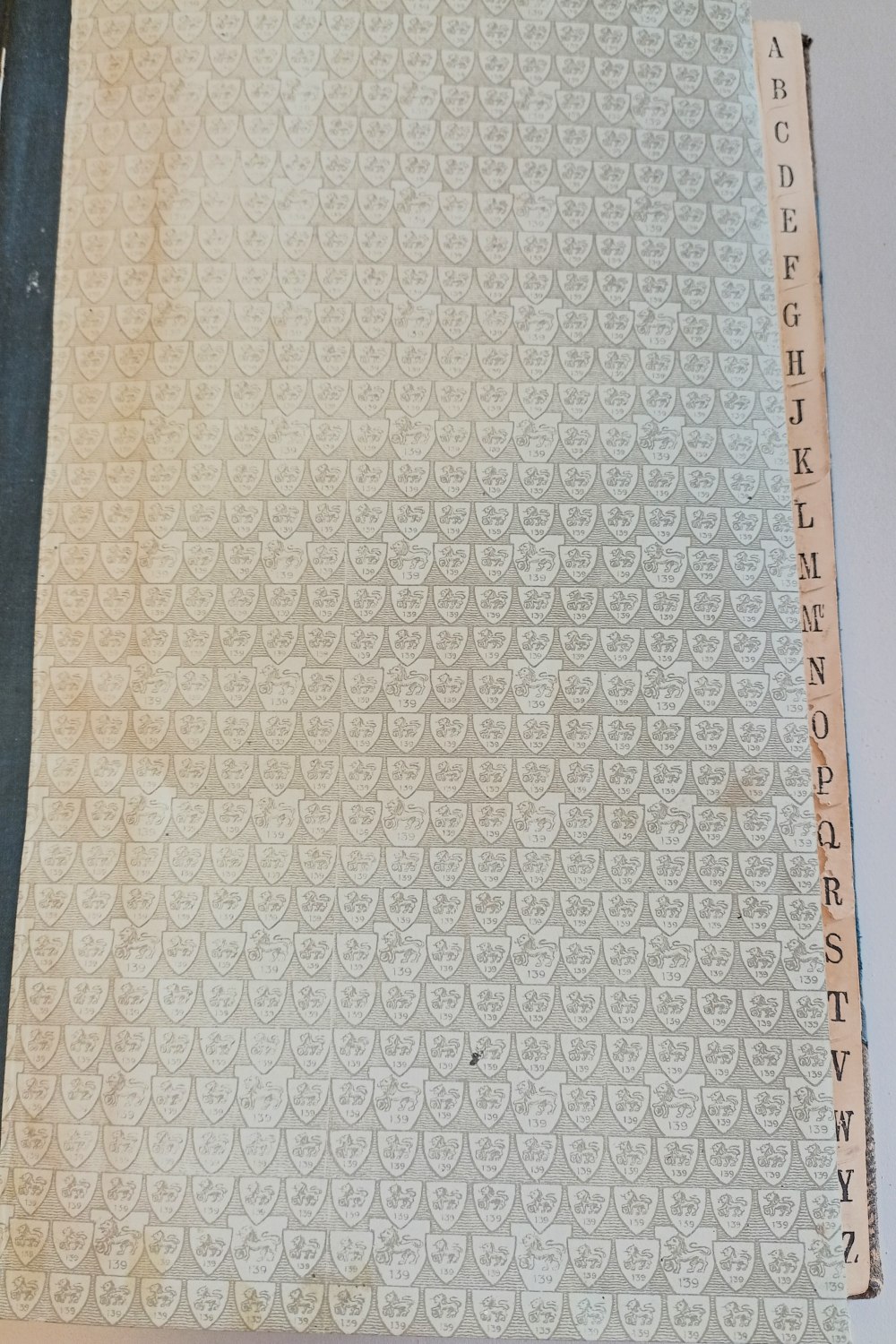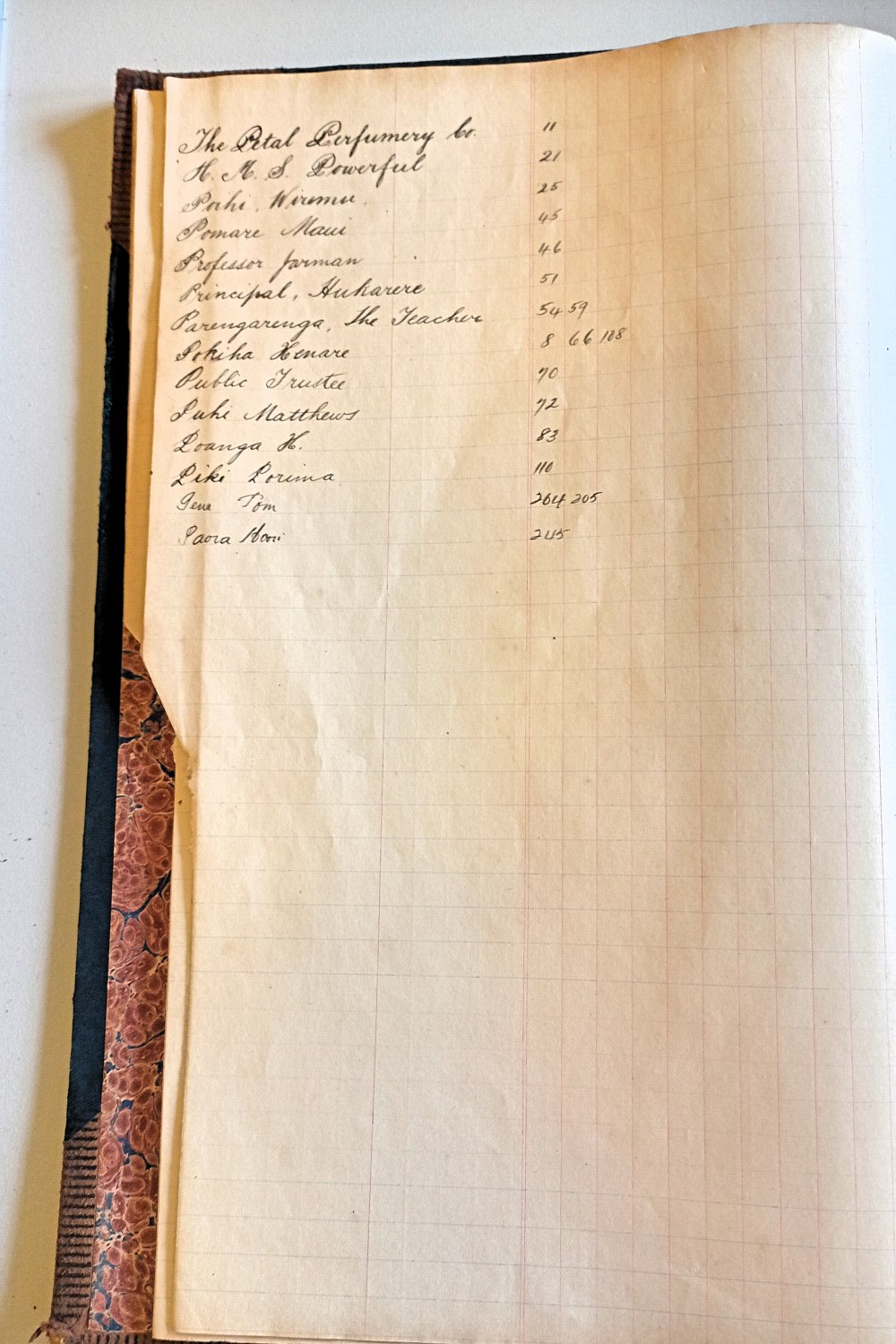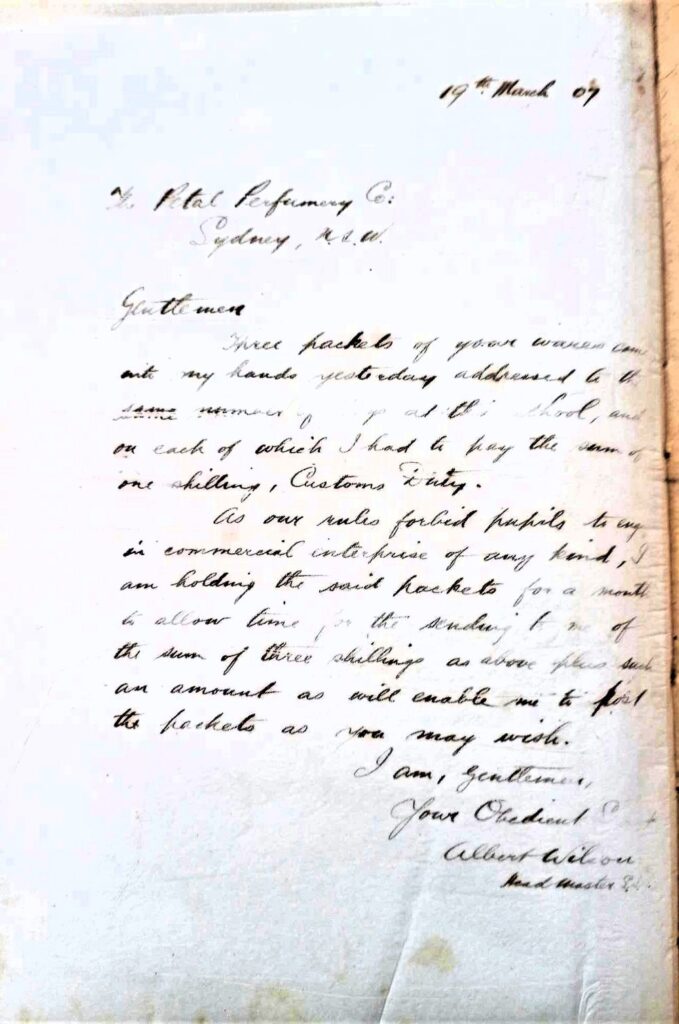The mystery of the Petal Perfumery Company at St Stephen’s school
In the St Stephen’s School archives, there is a collection of 20th-century letterbooks kept by the first headmaster, Albert Wilson. Back in the day, letterbooks were used like we use USB sticks, hard drives, and Cloud storage today. Anyone who corresponded frequently used a letterbook to keep a copy of their outward correspondence. To enable the user to refer to a piece of correspondence, letterbooks have numbered pages and an index at the front with alphabetized tabs. This meant the writer could index their letters by subject and the name of the recipient.
Often, the index is considered the least exciting part of a letterbook; most people just want to dive in and look at the letters. However, sometimes glancing through the index can bring to light intriguing and unexpected references. For instance, in Albert Wilson’s letter book 27 February 1905 – 18 March 1907 under P in the index was a reference to Petal Perfumery. This was curious – why would the headmaster of a school for boys be corresponding with a perfume company?
On locating the letter in the book, it was discovered that a group of enterprising St Stephen’s boys had ordered packets of perfume to on-sell from a company based in Sydney. Albert Wilson was rather annoyed to find that he had to pay customs duty on the goods when he went to collect the mail.
|
|
Transcription of the letter to The Petal Perfumery Company19th March 1907 The Petal Perfumery Co. Gentlemen, Three packets of your wares came into my hands yesterday addressed to the same number of boys at this school, and on each of which I had to pay the sum of one shilling, Customs duty. As our rules forbid pupils to engage in commercial enterprise of any kind, I am holding the said packets for a month to allow time for the sending to me of the sum of three shillings as above plus such an amount as will enable me to post the packets as you may wish. I am, gentlemen, Albert Wilson |
Petal Perfumery Company in the newspaper
So how did a group of schoolboys learn about a scheme to sell packets of perfume and hopefully earn their fortunes?
A bit of digging in PapersPast revealed numerous advertisements placed in major New Zealand newspapers by the Petal Perfumery Company. The company claimed to offer an opportunity to receive gifts for free. The catch – the consumer would have to sell six shillings’ worth of perfume first and, as Mr. Wilson discovered, the consumer would also have to pay Customs fees on the imported goods.
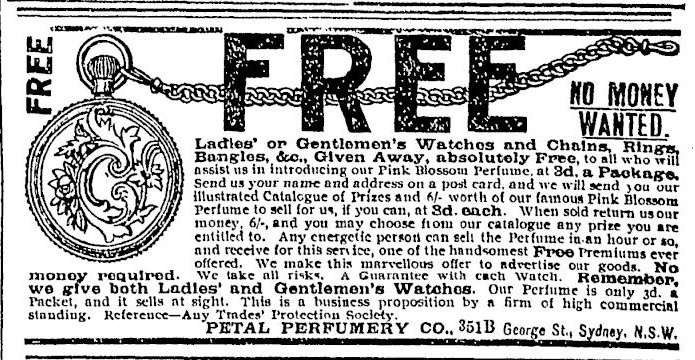
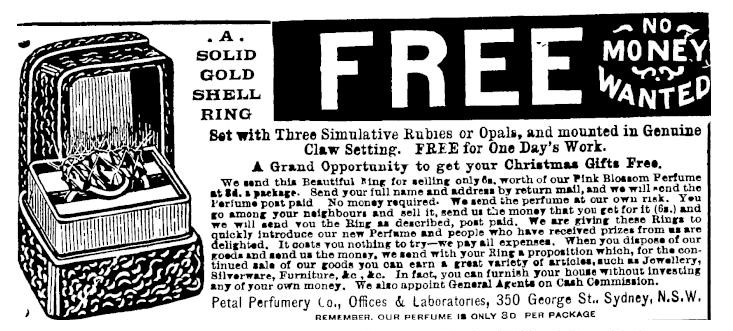
This marketing scam by the Petal Perfumery Company caught the attention of the news media, in New Zealand and in Australia, who wrote a series of articles revealing the truth behind the advertisements.
The New Zealand Observer, an Auckland newspaper, wrote in 1907 about what they described as a social nuisance where children were going door to door selling cheap trinkets on behalf of Australian firms. The newspaper said one of the main culprits was the Petal Perfumery Company and this company had been placing advertisements claiming to contain a puzzle that if the reader solved, they would receive a prize.
In reality, there was no puzzle to solve, it was a trick to lure people into the Company’s sales scheme. The ‘winners’ would receive their prize of a cheap trinket along with two dozen packets of cheap perfume sachets with a letter outlining the riches they could earn if they sold the perfume to their friends at threepence each. Once the sachets were sold, the winner would send six shillings to Sydney and receive further gifts such as a ring or watch. The newspapers pointed out these young people were in fact the victims of a marketing scam and would end up losing about two shillings as a result.
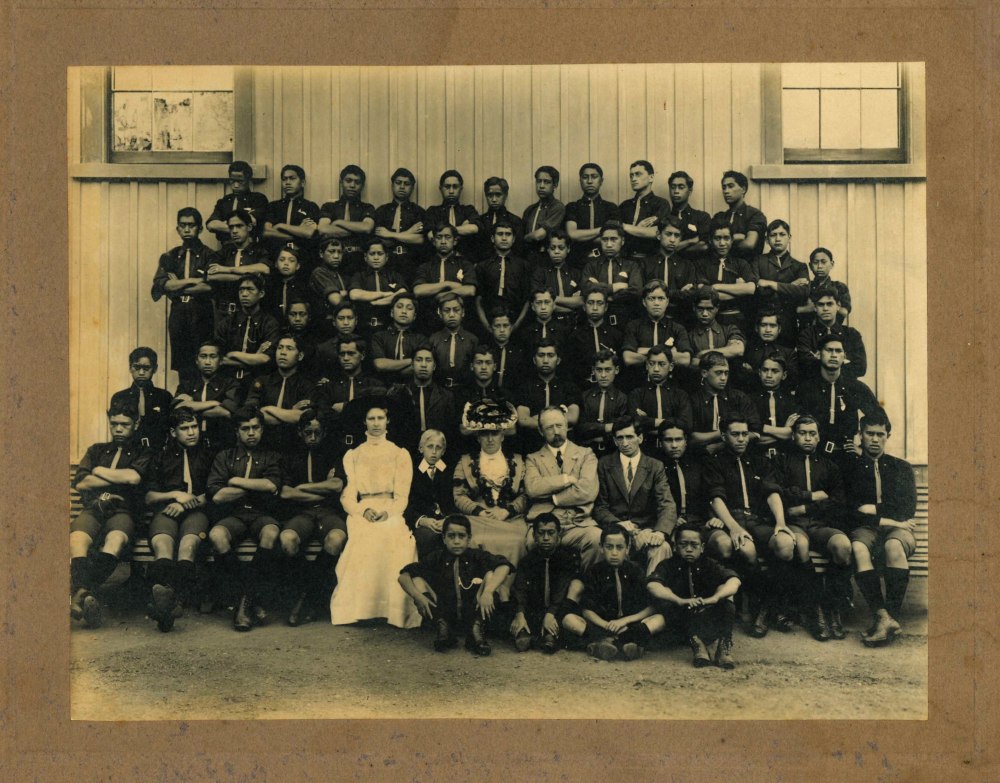
The Truth newspaper in Perth stated the perfume sachets were of questionable quality, they opened one and found it contained about half a teaspoon of orris root, rose leaves and what might have been wood shavings. The Truth’s verdict on the smell of the sachets – “whatever the parcel may have contained was scenty at first, it contained nothing soulful at the time of its analysis in this office”. The newspaper went on to say “there are any number of perfumes in the world we have never smelt and some we have. But we have not smelt any quite as fishy…”, (Truth Perth WA 1903-1931, Saturday 27 July 1907 p.5).
The newspapers noted several companies running similar advertisements, and it was found the companies all operated from the Commercial Buildings in Ash Street, Sydney. The newspapers alleged that these companies were, in fact, run by one person.
Whether there were separate companies or one swindler behind them all, there was no record in the St Stephen’s School letterbooks to indicate that Albert Wilson ever received his three shillings back from the Petal Perfumery Company.
A search of the Register of Firms index 1903-1922 held by the State Archives of New South Wales revealed the Petal Perfumery Company was owned by Charles Norris Commeford and Thomas Danvers Ellis. Further research using this index found they also owned at least ten other companies, some of which were mentioned by the newspapers.


